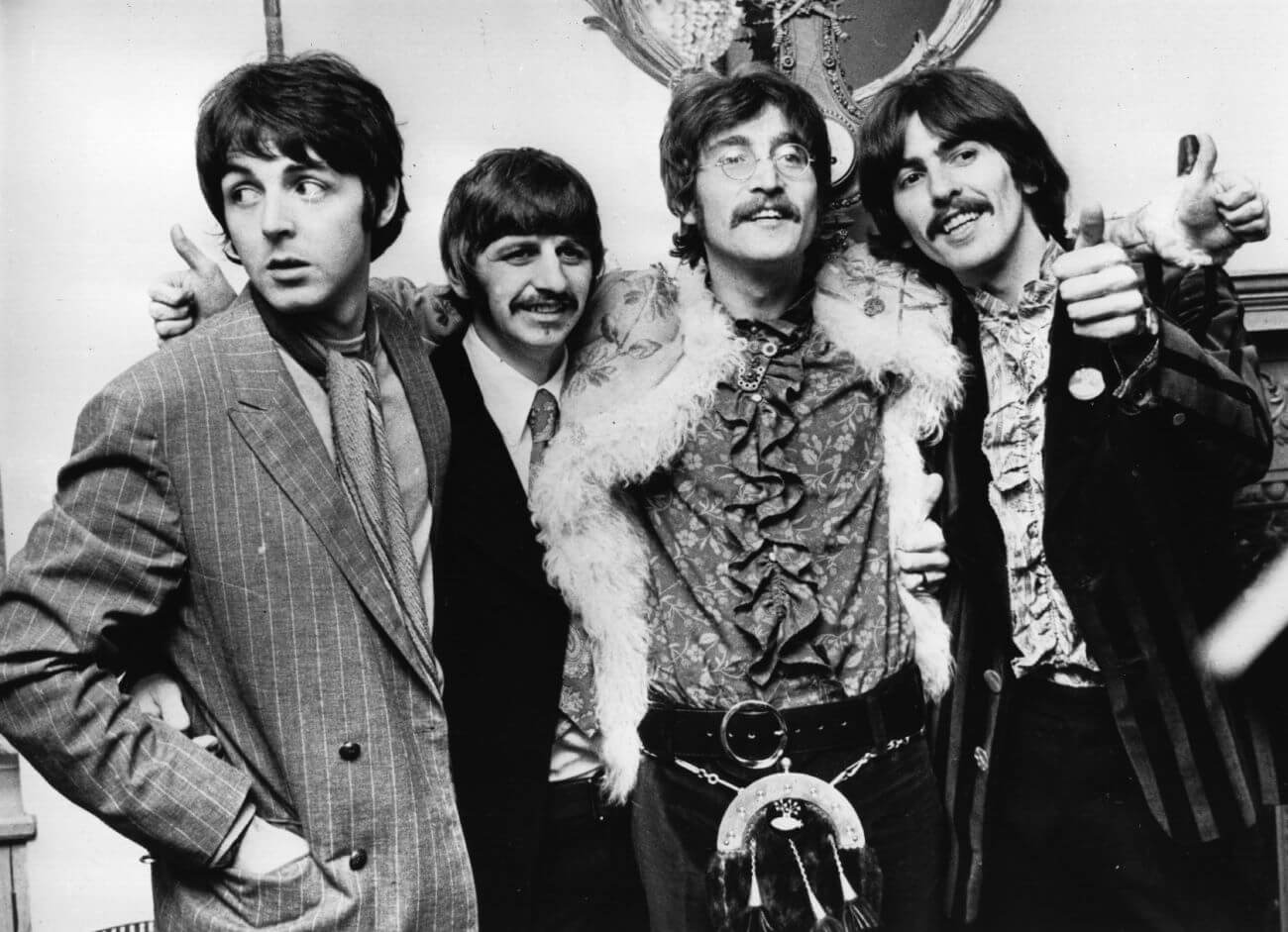
Today in History: John Lennon and George Harrison Ripped Paul McCartney in Court
On Feb. 23, 1971, John Lennon and George Harrison went all in on their former bandmate, Paul McCartney. After ongoing disagreements about who should be managing The Beatles, McCartney sued the band. The rest of the band stood against him, requiring them to make statements about McCartney. Harrison and Lennon were incredibly frustrated with McCartney when The Beatles broke up, and they made their feelings clear in their affidavits.

Paul McCartney went against John Lennon, George Harrison, and Ringo Starr in a lawsuit
In 1970, McCartney publicly announced that The Beatles had broken up. They had been arguing for a while and finally reached a breaking point. That same year, McCartney sued the band. He’d staunchly opposed his bandmates’ decision to appoint Allen Klein to preside over the band’s finances. McCartney felt the only way to save the band was to sue them.
“If I hadn’t done that, it would have all belonged to Allen Klein,” he told GQ in 2020. “The only way I was given to get us out of that was to do what I did. I said, ‘Well, I’ll sue Allen Klein,’ and I was told I couldn’t because he wasn’t party to it. ‘You’ve got to sue The Beatles.’”
He said the lawsuit was painful but necessary.
“Well, as you can imagine, that was horrendous and it gave me some terrible times,” he said. “I drank way too much and did too much of everything. And it was crazy, but I knew that was the only thing to do, because there was no way I was going to save it for me, because there was no way I was going to work that hard for all my life and see it all vanish in a puff of smoke.”
John Lennon and George Harrison were not happy with Paul McCartney
After the court case began on Feb. 19, 1971, Lennon and Harrison presented their affidavits on Feb. 23. Neither painted McCartney in a good light.
“It was true, that when the group was touring, their work and social relationships were close, but there had been a lot of arguing, mainly about musical and artistic matters,” Lennon wrote, per The Beatles Diaries Volume 2: After the Breakup. “I suppose Paul and George were the main offenders in this respect, but from time to time we all gave displays of temperament and threatened to ‘walk out.’”
Lennon pointed out that McCartney was upset because his choice of manager, his father-in-law Lee Eastman, hadn’t been picked.
“The only other major contenders for the manager’s job were the Eastmans – father of McCartney’s wife Linda, and her brother,” Lennon said. “I had opposed the idea of having as manager anyone in such a close relationship with any particular Beatle. Paul’s criticism of Mr. Klein was not fair.”
In his affidavit, Harrison was even harsher, outlining his history of disagreements with McCartney.
“The only serious row was between Paul and me,” he wrote. “In 1968 I went to the United States and had a very easy cooperation with many leading musicians. This contrasted with the superior attitude which, for years past, Paul has shown towards me musically.”
Harrison said that after temporarily quitting the band, McCartney agreed to go easier on him. Because of the improved relations, Harrison had difficulty understanding why McCartney filed the lawsuit.
“I just could not believe it when, just before Christmas, I received a letter from Paul’s lawyers,” Harrison wrote. “I still cannot understand why Paul acted as he did.”
Ringo Starr was more optimistic in his affidavit
Lennon and Harrison made their frustrations with McCartney clear. While Ringo Starr also questioned McCartney’s motivation, he offered a kinder assessment of his former bandmate.
“The Beatles might yet stay together as a group,” he wrote. “Paul is the greatest bass player in the world. He is also determined. He goes on and on to see if he can get his own way. While that may be a virtue, it did mean that musical disagreements inevitably rose from time to time. But such disagreements contributed to really great products.”
Though he was frustrated about the court case, he admitted that he didn’t believe McCartney would be doing this unless he had good reason.
“I was shocked and dismayed, after Mr. McCartney’s promises about a meeting of all four Beatles in London in January, that a writ should have been issued on December 31,” he wrote. “I trust Paul and I know he would not lightly disregard his promise. Something serious, about which I have no knowledge, must have happened between Paul’s meeting with George in New York at the end of December.”
On March 12, 1971, the High Courts of London ruled in McCartney’s favor.


